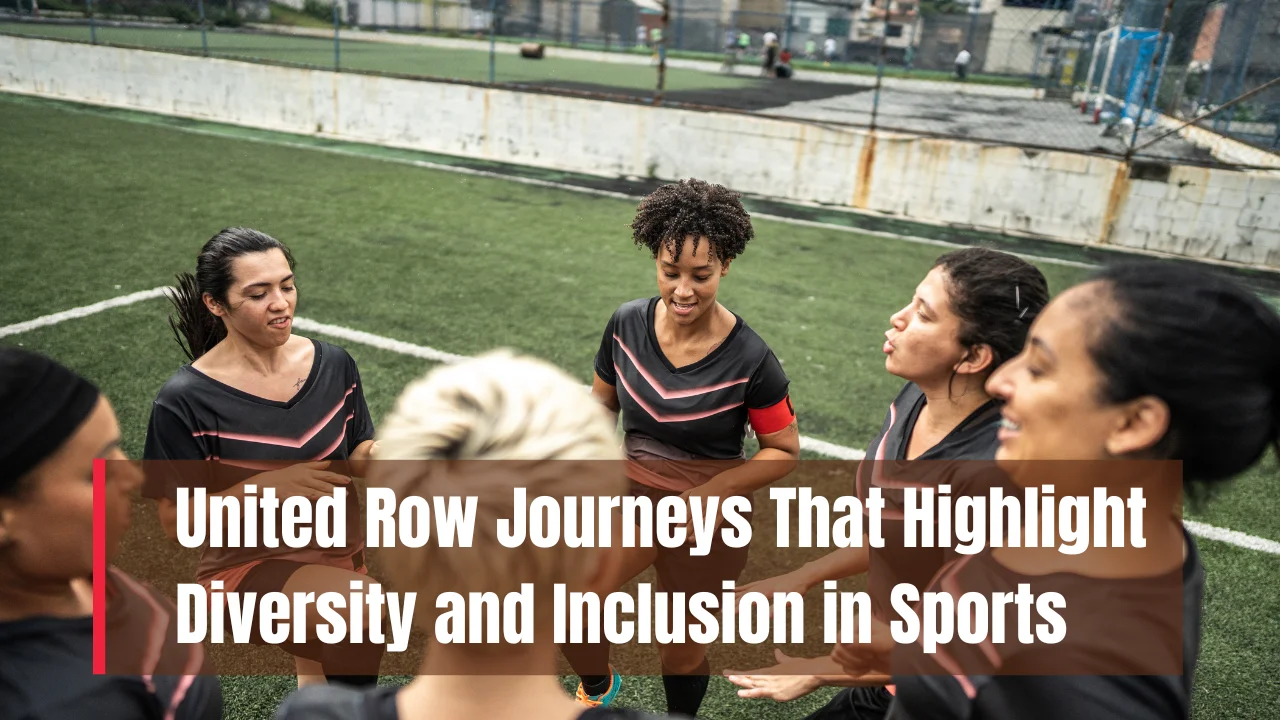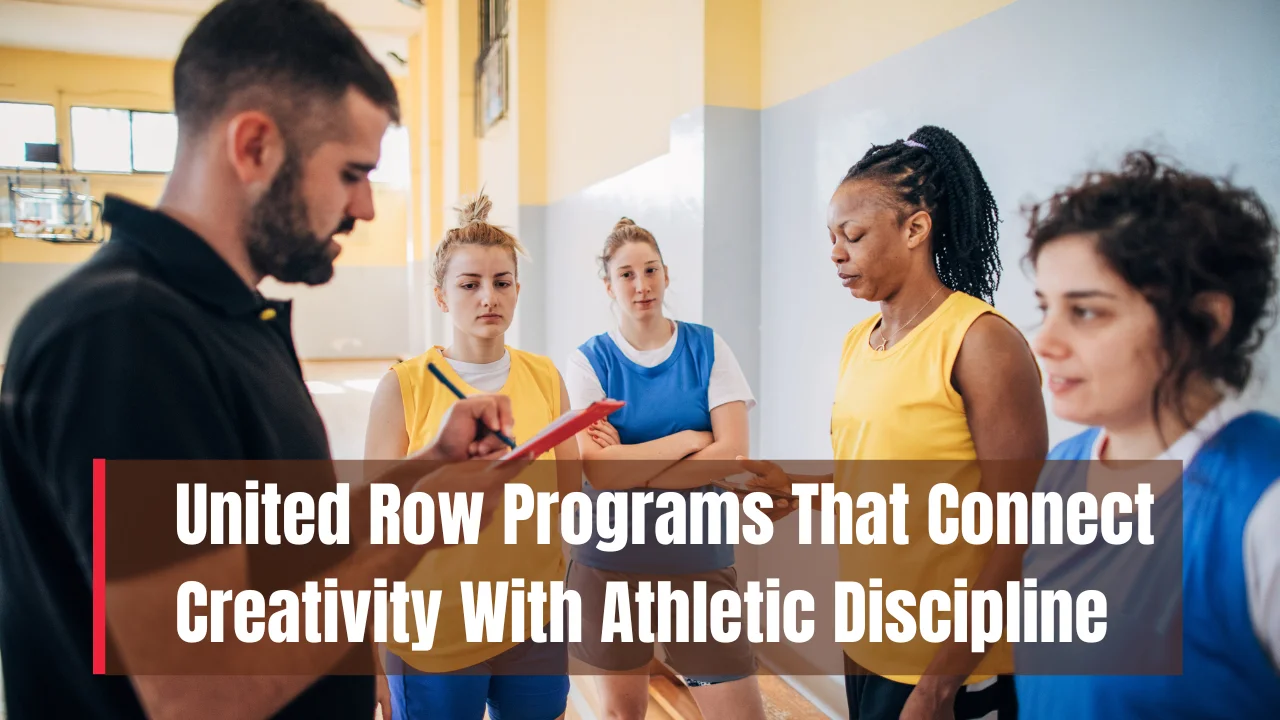Peer Motivation: Peer motivation is one of the most underestimated forces in educational and collaborative environments. At United Row, it isn’t just about learning course material or completing tasks. It’s about being surrounded by like-minded individuals who push each other forward through shared goals, support, and the consistent energy of community-driven success. The environment thrives on people helping people, naturally lifting each other up in the process.
This article explores how peer motivation directly contributes to success at United Row, both academically and personally. We’ll look into how this motivation shapes behavior, improves performance, and cultivates resilience. With structured systems in place and a strong peer culture, United Row proves that when people lift each other up, everyone wins.
The Power of Peer Motivation in Shaping Success at United Row
At its core, peer motivation is about how individuals influence each other through shared energy, values, and behaviors. At United Row, it is embedded into the learning culture, where participants aren’t isolated learners, but part of a larger community striving for success. It goes beyond classroom collaboration; it’s about consistent encouragement, celebrating achievements together, and rising as a group. This form of motivation fosters belonging and persistence, encouraging individuals to meet their goals with greater determination. Whether it’s group studies, discussions, or informal peer reviews, every interaction adds to a powerful cycle of positive reinforcement that drives both academic and personal growth.
Overview Table
| Aspect | Insight |
| Environment | Focuses on collaboration and collective growth |
| Influence | Peers encourage each other’s productivity and resilience |
| Motivation Type | Intrinsic and relational, not fear-based |
| Learning Culture | Shared learning, mentorship, and open discussion |
| Key Benefit | Boosts confidence and maintains consistent performance |
| Emotional Impact | Reduces stress through support and camaraderie |
| Long-Term Effect | Builds sustainable habits and community values |
| Ideal for | Students, mentors, and collaborative professionals |
Why Peer Motivation Matters
At United Row, success is deeply rooted in connection. The platform is structured to promote a sense of community where individuals are not just working toward personal goals, but also contributing to others’ growth. Peer motivation becomes the thread tying everyone together, enabling learners to share challenges, encourage each other, and push limits as a team.
When a peer overcomes a challenge or reaches a milestone, it serves as a signal to others: success is possible. That visibility becomes a source of motivation that no speech or instruction can replicate. This real-time, relatable proof of progress helps reinforce both purpose and potential.
How United Row Encourages Peer Interaction
United Row has intentionally designed its programs to enhance student-to-student interaction. Whether through structured peer mentoring, collaborative assignments, or open discussion spaces, the goal is to facilitate meaningful exchanges. These formats provide space for learners to share ideas, express doubts, and work through complex problems together.
In peer-led environments, students often feel more comfortable voicing concerns or asking for help. There’s less pressure to perform and more freedom to explore. This relaxed but focused setting helps learners develop clarity and self-awareness while also contributing to the group’s momentum.
Benefits of Peer Motivation
The value of peer motivation goes beyond grades and task completion. It nurtures personal development and promotes lasting change in attitude and approach.
- Higher engagement: Active participation becomes natural when everyone is involved.
- Confidence building: Positive reinforcement from peers helps individuals feel seen and capable.
- Shared progress: Students benefit from seeing how others solve problems and approach challenges.
- Emotional resilience: Knowing others face similar struggles makes the journey feel less lonely.
- Efficient learning: Group efforts often uncover solutions faster and spark creativity.
At United Row, these benefits are not side effects. They are the goals driving the program structure.
Peer Motivation vs. Traditional Motivation
Traditional forms of motivation rely heavily on top-down systems: instructions, deadlines, and evaluations from authority figures. While effective, they often lack the warmth and relatability that peer influence provides. Peer motivation, by contrast, is rooted in connection and shared understanding.
At United Row, this distinction matters. Peers offer real-time feedback, celebrate each other’s wins, and stay present in each other’s growth. This builds a network of accountability that feels supportive rather than stressful. It promotes self-driven effort, which is more sustainable over time than motivation based solely on fear of failure.
Key Ways Peer Motivation Works at United Row
1. Peer Mentoring Programs
- Every newcomer is paired with someone more experienced, creating a bridge of trust and knowledge.
- Mentors provide relatable guidance, often based on their own challenges and how they overcame them.
- This format encourages consistency, empathy, and motivation rooted in real stories rather than theoretical advice.
2. Collaborative Learning Sessions
- Study groups and collaborative tasks allow for idea-sharing and co-creation.
- Peer-led discussions deepen understanding and invite diverse perspectives.
- These sessions make learning interactive, engaging, and far more impactful than solo study.
Both these structures encourage meaningful connection, which fuels motivation in a natural and consistent way.
How to Be a Source of Peer Motivation
You don’t have to be the smartest or most experienced person in the group to be a positive force. Often, showing up consistently, sharing your thoughts honestly, and supporting others through simple actions makes the biggest impact. Your energy influences the people around you more than you realize.
Whether you’re offering feedback, helping a peer understand a concept, or simply acknowledging someone’s effort, you’re playing a role in their journey. At United Row, this type of interaction isn’t just encouraged — it’s expected. Everyone is part of something larger than themselves, and every person’s effort contributes to that collective energy.
Challenges in Peer Motivation
Of course, peer motivation is not without its challenges. If the group dynamic becomes overly competitive or if individuals begin comparing themselves negatively, motivation can dip. There’s also the risk of peers unintentionally spreading misinformation or reinforcing unhelpful habits.
That’s why United Row places emphasis on mentor supervision and structured interaction. Guided discussions, feedback loops, and periodic check-ins help ensure that the motivation stays productive and positive. When everyone is aligned with mutual respect and shared goals, these challenges are easily managed.
Final Thoughts
The strength of peer motivation at United Row lies in its simplicity and sincerity. It’s not about pressure or comparison, but about being surrounded by people who care enough to encourage each other. When students and professionals work together in this way, it creates a ripple effect of progress and inspiration.
At United Row, every voice matters. Every shared success, every helpful tip, every moment of support adds to the overall growth of the group. If you’re part of this journey, know that your presence can make a difference not only in your path but in someone else’s.
If this resonates with you, consider sharing your experience or exploring more content that helps you grow with your peers. Every step forward you take may just be the motivation someone else needs.
FAQs
Peer motivation is the encouragement we get from those around us. It helps boost confidence, drive effort, and promote shared learning.
Because United Row emphasizes community and collaboration, peer motivation naturally fits into its learning model, helping individuals perform better together.
By showing support, sharing your knowledge, listening actively, and celebrating their progress, you can inspire and uplift those around you.
No, but it complements it by providing a relatable and continuous source of encouragement and feedback.
This can happen, which is why structure and respectful culture are important. Platforms like United Row ensure peer interaction stays constructive.












